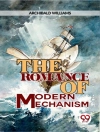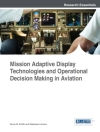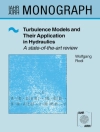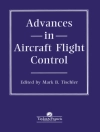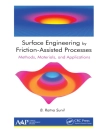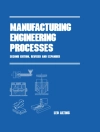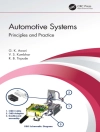Design and manufacturing is the essential element in any product development lifecycle. Industry vendors and users have been seeking a common language to be used for the entire product development lifecycle that can describe design, manufacturing and other data pertaining to the product. Many solutions were proposed, the most successful being the Stadndard for Exchange of Product model (STEP). STEP provides a mechanism that is capable of describing product data, independent from any particular system. The nature of this description makes it suitable not only for neutral file exchange, but also as a basis for implementing, sharing and archiving product databases. ISO 10303-AP203 is the first and perhaps the most successful AP developed to exchange design data between different CAD systems. Going from geometric data (as in AP203) to features (as in AP224) represents an important step towards having the right type of data in a STEP-based CAD/CAM system. Of particular significance is the publication of STEP-NC, as an extension of STEP to NC, utilising feature-based concepts for CNC machining purposes. The aim of this book is to provide a snapshot of the recent research outcomes and implementation cases in the field of design and manufacturing where STEP is used as the primary data representation protocol. The 20 chapters are contributed by authors from most of the top research teams in the world. These research teams are based in national research institutes, industries as well as universities.
Tabela de Conteúdo
STEP in a Nutshell.- Feature-based Process Planning Based on STEP.- A Heuristic STEP-NC Based Process Planning Tool for Sequencing NC Machining Operations.- STEPNC++ – An Effective Tool for Feature-based CAM/CNC.- A STEP-Compliant Approach to Turning Operations.- Circular Sawblade Stone Cutting Technology Based on STEP-NC.- Open Platform Development for STEP-compliant CNC.- STEP-NC in Support of Machining Process Optimization.- Achieving a STEP-NC Enabled Advanced NC Programming Environment.- STEP-compliant CNC Systems, Present and Future Directions.- Standardised Process Control System for CNC Manufacturing.- A STEP-NC Compliant Methodology for Modelling Manufacturing Resources.- Development of Digital Semantic Machining Models for STEP-NC Based on STEP Technology.- Development of a STEP-NC Network Management Protocol for Decentralized Manufacturing.- A Generic Product Modelling Framework for Rapid Development of Customised Products.- STEP in the Context of Product Data Management.- STEP in the Context of PLM.- Usage of Agent Technology to Coordinate Data Exchange in the Extended Enterprise.- An XML Implementation for Data Exchange of Heterogeneous Object Models.- Module-based Platform for Seamless Interoperable CAD-CAM-CNC Planning.
Sobre o autor
Xun Xu’s recent work centres around the deployment of the STEP-NC data model, in replacement of the 50-year-old G-code model, to achieve a total integrated CAD/CAM/CNC scenario. He was invited to chair an editorial panel to lead a Special Issue on ‘STEP-Compliant Process Planning and Manufacturing’ for the International Journal of Computer Integrated Manufacturing.
Associate Professor Xu obtained his Ph D from UMIST, UK, and is now a member of the Department of Manufacturing Engineering at the University of Auckland, where he is Director of the Intelligent and Interoperable Manufacturing Systems Research Group, and Head of the Manufacturing Systems Laboratory.
Associate Professor Xu is a member of the editorial boards for several journals, including the International Journal of Production Research and Robotics & Computer Integrated Manufacturing.
Andrew Y. C. Nee has been working on several areas in manufacturing engineering, including computer-aided mould, die and fixture design; distributed manufacturing systems; and augmented reality applications in manufacturing. His most recent co-edited book, entitled Collaborative Design and Planning for Digital Manufacturing, was published by Springer in early 2009.
Professor Nee earned his Ph D from the Victoria University of Manchester and joined the University of Singapore the following year. In 1982 he became the first person from outside the USA to be awarded the Outstanding Young Manufacturing Engineer’s Award from the Society of Manufacturing Engineers. He is currently Director of the Office of Research at the National University of Singapore, as well as chairman of Manusoft Technologies Pte Ltd.
Professor Nee is regional editor of Springer’s International Journal of Advanced Manufacturing Technology and of the International Journal of Machine Tools and Manufacture, in addition to being a member of the editorial boards foranother 20 journals in manufacturing engineering. He currently holds the chairmanship of the Scientific and Technical Committee Design and is also a council member.


